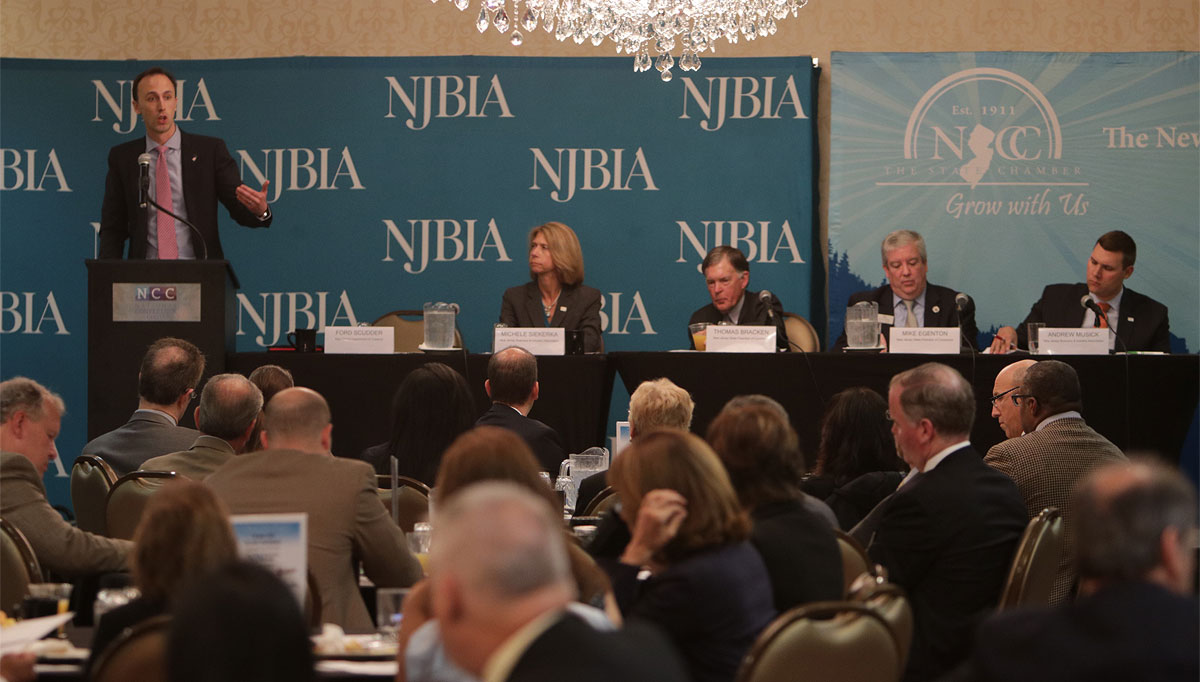NJ Treasurer to Business Leaders:
Lottery Plan Would Ultimately Fully Fund Pension System
Gov. Chris Christie's proposal to leverage state lottery proceeds to bolster the massively underfunded public employee pension system would make the pension system nearly fully funded in 30 years, said state treasurer Ford M. Scudder. His remarks came during an address to business leaders May 31 at a breakfast in East Windsor presented jointly by the New Jersey Chamber of Commerce and the New Jersey Business & Industry Association.
The pension system would be more than 90 percent funded after 30 years, Scudder said. It is currently only 45 percent funded, representing a $49 billion deficit, he said. After 30 years, he added, the lottery revenue would return to the general fund.
"The change in New Jersey's (pension funding) trajectory is significant," Scudder said, "and will stabilize the budget over time. It will improve the state's credit rating and reduce the cost of debt service."
Still, he cautioned, "This is no silver bullet that will solve everything at once. It will take a variety of actions - the lottery funds, annual budget payments and policy changes."
The lottery revenue currently funds education and some other state institutions, but Scudder said the loss of those funds would be "largely offset by a reduction in the amount of the state's annual payment to the pension."
"The plan is budget neutral for five years followed by a modest (negative) impact for five years before becoming a positive," Scudder said.
Death Taxes
The treasurer also said it is critical that the next governor and Legislature follow through with repealing the estate tax, which is slated to be phased out over the next two budget years. The elimination of New Jersey's estate tax, a tax levied on the net value of the estate of a deceased person over $675,000, is "imperative for economic growth" Scudder said.
"We have, by far, the worst death tax policy (in America)," Scudder said. "And it leads to people and capital leaving New Jersey."
New Jersey is one of only two states that assess both an estate tax and an inheritance tax, which amounts to double taxation on income and savings, Scudder said. Thirty-one states have neither tax, giving those states a leg up on attracting and retaining employers.
"It's quite simple and it astonishes me that some people don't understand it," Scudder said. "People will move out of state for at least half the year to give money to their kids rather than give money to state government. And it impacts state government because jobs leave with them, capital leaves with them and tax revenue leaves with them."
Thank you to UnitedHealthcare for sponsoring the event.
For photos from the event, click on an image below:
{eventgallery event='72157684401476136' attr=images mode=link max_images=15 thumb_width=50 offset=0 }
